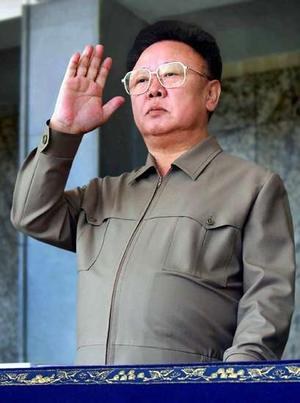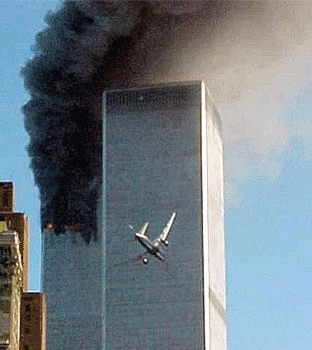Some Progress May Mean Hope for Baghdad
By ROBERT H. REID, Associated Press Writer
BAGHDAD – Bomb deaths have gone down 30 percent in Baghdad since the U.S.-led security crackdown began a month ago. Execution-style slayings are down by nearly half.
The once frequent sound of weapons has been reduced to episodic, and downtown shoppers have returned to outdoor markets _ favored targets of car bombers.
There are signs of progress in the campaign to restore order in Iraq, starting with its capital city.
But while many Iraqis are encouraged, they remain skeptical how long the relative calm will last. Each bombing renews fears that the horror is returning. Shiite militias and Sunni insurgents are still around, perhaps just laying low or hiding outside the city until the operation is over.
U.S. military officials, burned before by overly optimistic forecasts, have been cautious about declaring the operation a success. Another reason it seems premature: only two of the five U.S. brigades earmarked for the mission are in the streets, and the full compliment of American reinforcements is not due until late May.
U.S. officials say that key to the operation’s long-term success is the willingness of Iraq’s sectarian and ethnic political parties to strike a power- and money-sharing deal. That remains elusive _ a proposal for governing the country’s main source of income _ oil _ is bogged down in parliamentary squabbling.
Nevertheless, there are encouraging signs.
Gone are the “illegal checkpoints,” where Shiite and Sunni gunmen stopped cars and hauled away members of the rival sect _ often to a gruesome torture and death.
The rattle of automatic weapons fire or the rumble of distant roadside bombs comes less frequently. Traffic is beginning to return to the city’s once vacant streets.
“People are very optimistic because they sense a development. The level of sectarian violence in streets and areas has decreased,” said a 50-year-old Shiite, who gave his name only as Abu Abbas. “The activities of the militias have also decreased. The car bombs and the suicide attacks are the only things left, while other kinds of violence have decreased.”
In the months before the security operation began Feb. 14, police were finding dozens of bodies each day in the capital _ victims of Sunni and Shiite death squads. Last December, more than 200 bodies were found each week _ with the figure spiking above 300 in some weeks, according to police reports compiled by The Associated Press.
Since the crackdown began, weekly totals have dropped to about 80 _ hardly an acceptable figure but clearly a sign that death squads are no longer as active as they were in the final months of last year.
Bombings too have decreased in the city, presumably due to U.S. and Iraqi success in finding weapons caches and to more government checkpoints in the streets that make it tougher to deliver the bombs.
In the 27 days leading up to the operation, 528 people were killed in bombings around the capital, according to AP figures. In the first 27 days of the operation, the bombing death toll stood at 370 _ a drop of about 30 percent.
Prime Minister Nouri al-Maliki, a Shiite, made a show of confidence Tuesday by traveling out of Baghdad for meetings with Sunni tribal leaders and government officials in Ramadi, a stronghold for Sunni insurgents.
“I would caution everybody about patience, about diligence,” U.S. spokesman Maj. Gen. William C. Caldwell said Wednesday. “This is going to take many months, not weeks, but the indicators are all very positive right now.”
Figures alone won’t tell the story. In Vietnam, generals kept pointing to enemy body counts to promote a picture of success even when many U.S. soldiers and civilian officials realized the effort was doomed.
True success will be when Iraqis themselves begin to feel safe and gain confidence in their government and security forces. Only then can the economy, long on its heels and with unemployment estimated between 25 and 40 percent, rebound and start providing jobs and a future for Baghdad’s people.
A long-term solution also must deal with the militias that sprang up after the ouster of Saddam Hussein.
Much of the relative calm may be due to a decision by Shiite cleric Muqtada al-Sadr to remove his armed militiamen, known as the Mahdi Army, from the streets. Al-Maliki warned the young cleric that he could not protect them from the Americans during the offensive.
U.S. troops rolled into the Mahdi stronghold of Sadr City on March 4 without firing a shot _ a radical change from street battles there in 2004.
Some Mahdi Army fighters may have left the city. But Iraqis who live in Shiite neighborhoods say many others are still around, collecting protection money from shopkeepers and keeping tabs on people _ albeit without their guns.
When American patrols pass by, Mahdi members step into shops or disappear into crowds until the U.S. troops are gone. Sunni militants remain in some areas of the city too, although last year’s sectarian bloodletting drove many Sunnis from their traditional neighborhoods, depriving extremists of a support network.
Sunni militants, meanwhile, are believed to have withdrawn to surrounding areas such as Diyala province where they have safe haven. The U.S. command sent an extra 700 soldiers Tuesday to protect the highways leading into the capital from there.
If militants from both sects are indeed lying low, that suggests they may have adopted a strategy of waiting until the security operation is over, then re-emerging to fight each other for control of the capital.
Conscious of that possibility, new U.S. commander Gen. David Petraeus and other senior generals avoid setting a date for when the operation would end. They insist the extra troops will stay as long as they are needed.
And they say the military will continue to track down key militia and insurgent figures, in hopes of crippling the leadership of insurgent groups before they attempt to re-emerge.
“You generally think that if you’re going to achieve (the desired results), that it would need to be sustained certainly for some time well beyond summer,” Petraeus told reporters last week.
The No. 2 commander in Iraq, Lt. Gen. Ray Odierno, has recommended that the buildup stretch longer, into the early months of 2008 _ if Congress will provide the money.
But positive trends in Iraq have proven hard to sustain. Hopes for reconciliation are quickly shattered. There have been a series of failed security initiatives.
With so many uncertainties, public opinion appears mixed.
“We gain nothing from this government. No change,” said Abu Zeinab, a Shiite father of two in Baghdad’s Hurriyah district. “Today is like yesterday. What is the difference?”
In eastern Baghdad, one homeowner whose house was seized by the family of a Shiite militiaman gained enough confidence to tell them to leave or he would turn them in to the Americans _ unthinkable only a few weeks ago.
_
Associated Press correspondents Sameer N. Yacoub and Bushra Juhi in Baghdad and AP researcher Julie Reed in New York contributed to this report.









